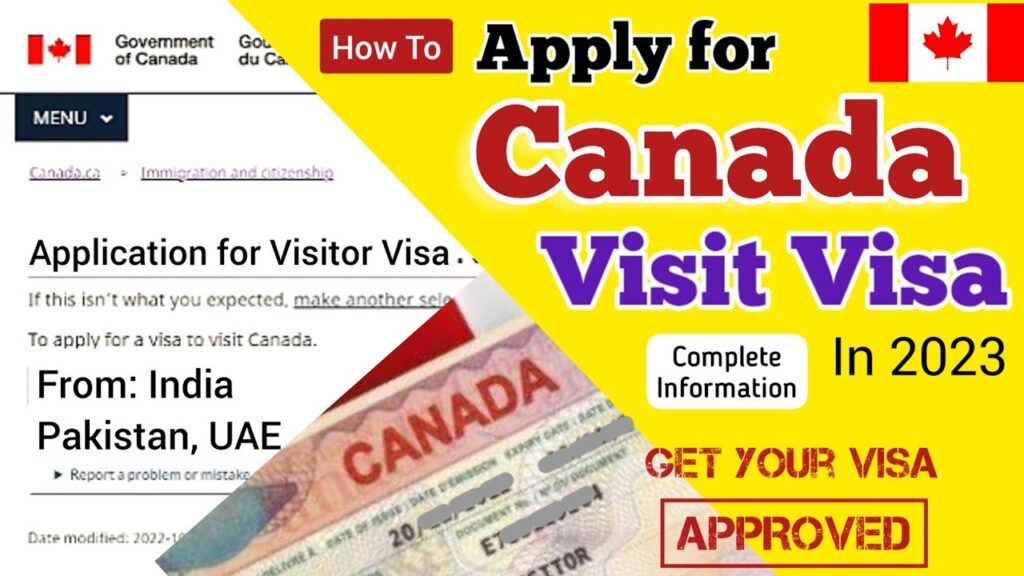When planning to visit, study, work, or immigrate to Canada, understanding the visa eligibility requirements is crucial. CANADA VISA ELIGIBILITY Canada offers various types of visas depending on the purpose of travel, and each category has specific conditions that applicants must meet. This article will provide an overview of the general eligibility criteria for popular Canadian visas, including tourist visas, study permits, work permits, and immigration options, along with additional factors influencing visa approval.
Tourist Visa (Visitor Visa) Eligibility Requirements
Canada’s tourist visa, also known as a visitor visa or Temporary Resident Visa (TRV), is intended for individuals who wish to visit the country for tourism, family visits, or short-term business purposes. To be eligible for a Canadian tourist visa, applicants must meet several general requirements.
First and foremost, the applicant must demonstrate a clear intent to leave Canada at the end of their authorized stay. This involves providing strong ties to their home country, such as employment, property ownership, or family connections. A sufficient amount of financial support is also required to cover the cost of the trip, including travel expenses and accommodation during the stay in Canada. Applicants should provide evidence of their financial stability, such as bank statements or pay slips, to prove they can afford their trip without relying on Canadian government assistance.
Moreover, applicants must be in good health, which may involve undergoing a medical examination, particularly if they plan to stay for more than six months. A background check is conducted to ensure the applicant has no criminal record or security risks, and they must provide valid travel documents, such as a passport. Meeting these criteria does not guarantee visa approval, as the final decision lies with the Canadian immigration officer handling the case.
Study Permit Eligibility Requirements
For individuals seeking to study in Canada, a study permit is required. To be eligible for a study permit, applicants must first receive an acceptance letter from a recognized Canadian educational institution, such as a university, college, or technical school. This acceptance letter is one of the most critical pieces of documentation for the study permit application.
Applicants must also prove they have sufficient financial resources to cover their tuition fees, living expenses for themselves (and any accompanying family members), and return transportation. They may be required to provide bank statements, proof of loans, or sponsorship letters as evidence of financial capacity.
Like other visas, study permit applicants must also demonstrate that they have a clean criminal record and be willing to undergo medical examinations if required. Once the study permit is granted, students are expected to maintain their enrollment and academic performance throughout their stay in Canada. Importantly, the study permit is not a visa itself—it allows the individual to study in Canada, but a separate visitor visa or electronic travel authorization (eTA) may also be required to enter the country.
Work Permit Eligibility Requirements
Canada offers several work permit options, which fall into two broad categories: employer-specific work permits and open work permits. The eligibility requirements for a work permit depend on the type of job, the employer, and the program under which the applicant is applying.
For employer-specific work permits, applicants must have a formal job offer from a Canadian employer who has obtained a Labor Market Impact Assessment (LMIA) in many cases. The LMIA process ensures that hiring a foreign worker will not negatively affect Canadian workers. Certain work permits are LMIA-exempt, such as those under international agreements (like the NAFTA) or for intra-company transfers. CANADA VISA FAQ For open work permits, which allow individuals to work for any employer in Canada (with some exceptions), eligibility criteria are more flexible. These permits are often granted to spouses or common-law partners of temporary workers or international students, and to participants in special programs like the International Experience Canada program.
In both cases, applicants must prove they have enough funds to support themselves and their family during their stay in Canada, if necessary. Criminal record checks and medical exams are also typically required.
Permanent Residency (Immigration) Eligibility Requirements
For individuals aiming to immigrate to Canada, the country offers several immigration programs, including the Express Entry system, Provincial Nominee Programs (PNPs), and family sponsorship. Each program has its own set of eligibility criteria.
The Express Entry system, for example, is points-based and assesses candidates based on factors such as age, education, work experience, language proficiency (in English or French), and adaptability. Applicants must achieve a minimum score to be considered for an invitation to apply for permanent residency.
Provincial Nominee Programs allow Canadian provinces and territories to nominate individuals based on regional labor market needs. These programs typically target skilled workers, entrepreneurs, and individuals with family ties in specific provinces. Family sponsorship allows Canadian citizens or permanent residents to sponsor their relatives to come to Canada as permanent residents, provided they meet income and relationship criteria.
Additional Factors Influencing Canada Visa Eligibility
Regardless of the type of visa, several factors can impact eligibility and approval. Applicants must ensure they provide complete and accurate information in their applications, as any discrepancies or false information can lead to visa refusal. Additionally, individuals with previous refusals or overstays in Canada or other countries may face additional scrutiny. Other factors include the applicant’s health, the purpose of the visit, and the overall credibility of their application. Consulting with a qualified immigration advisor or lawyer can be beneficial to improve the chances of success.


